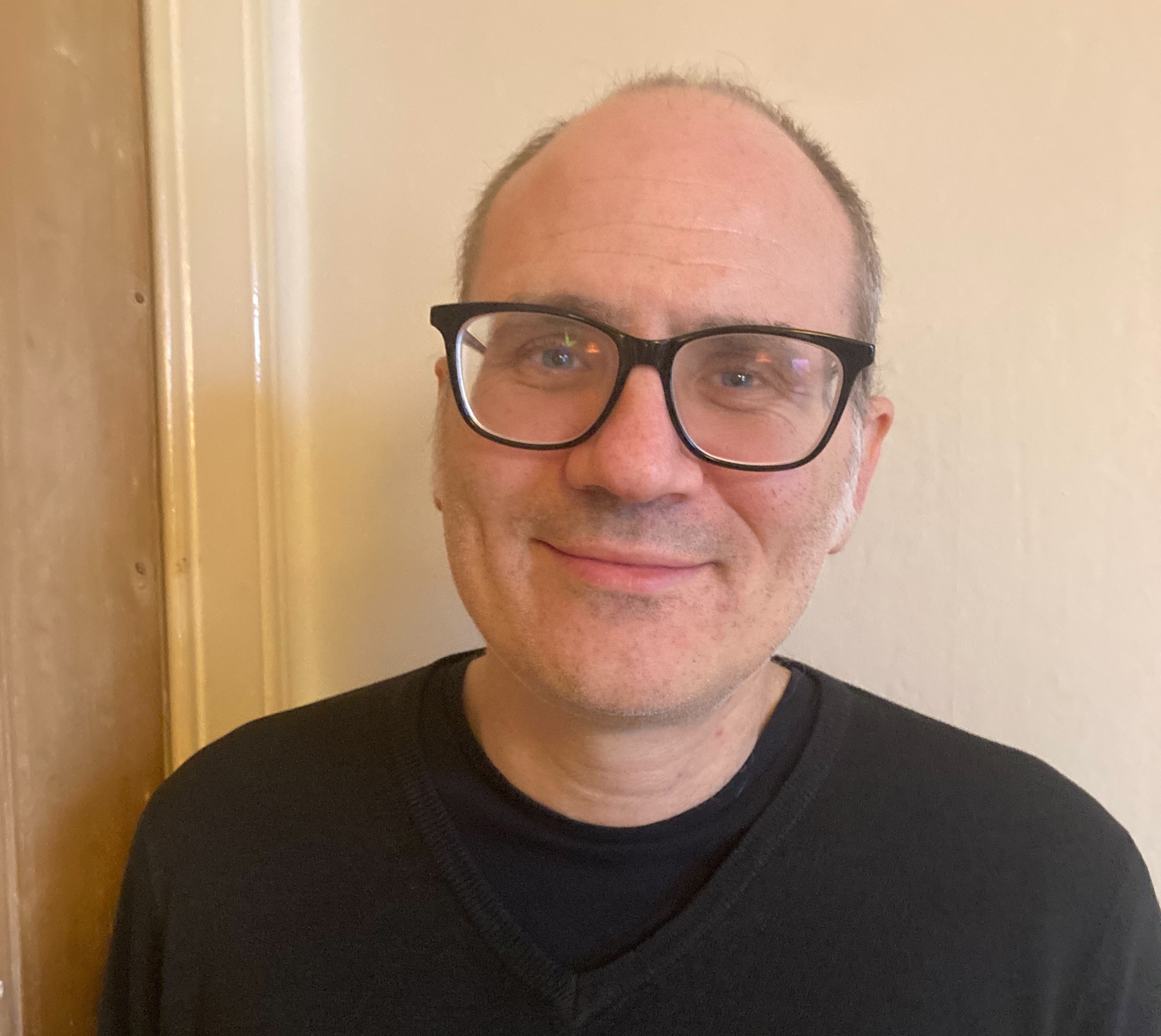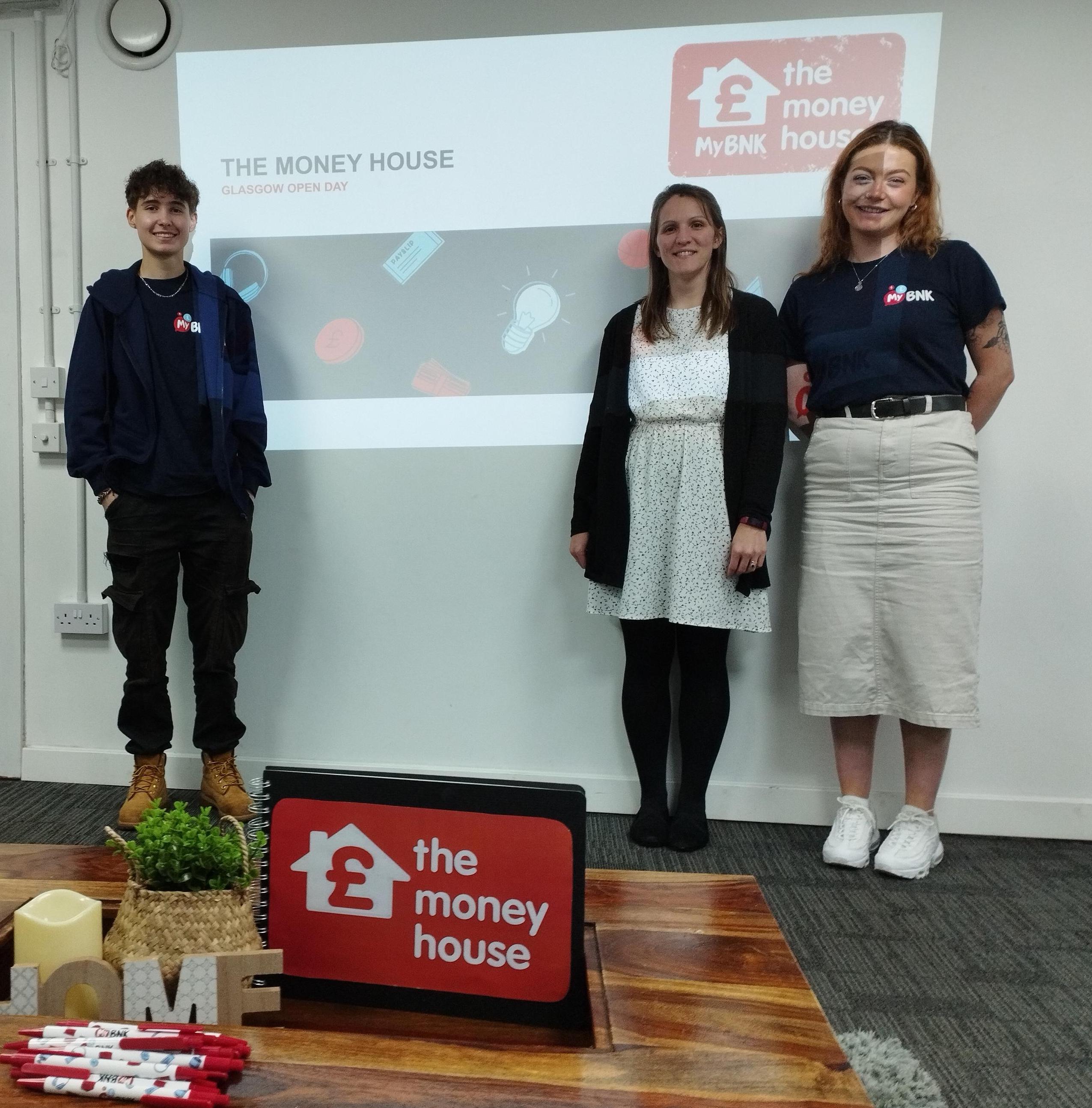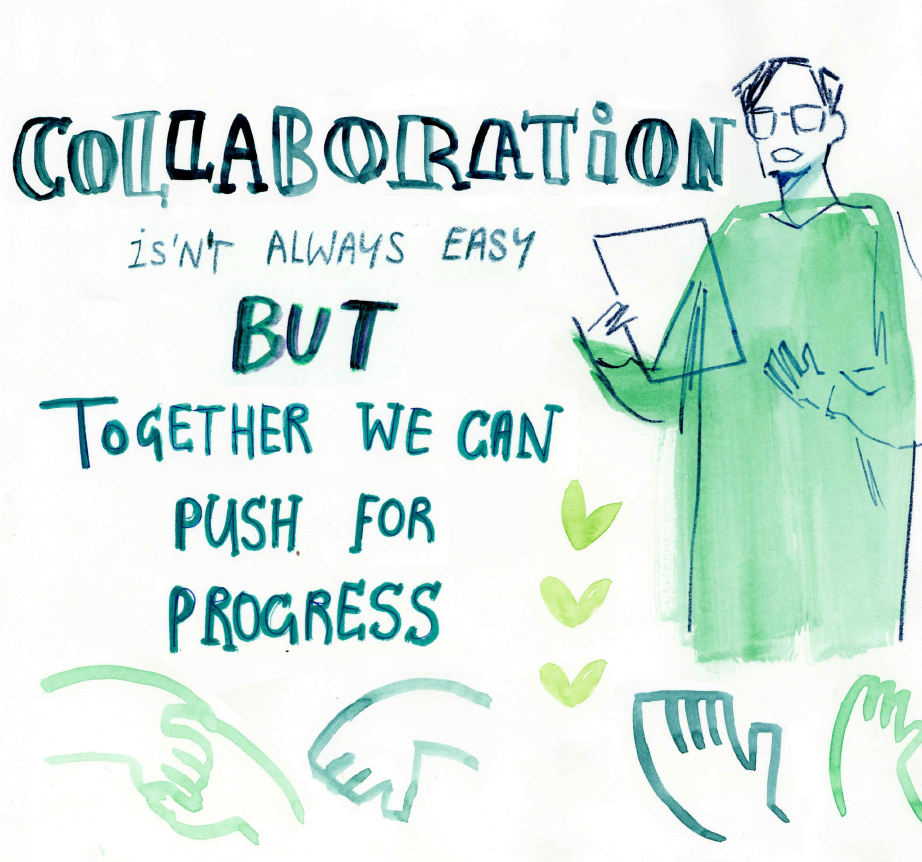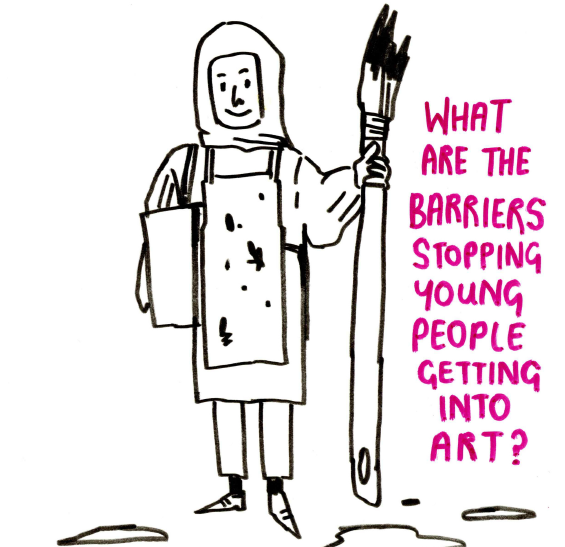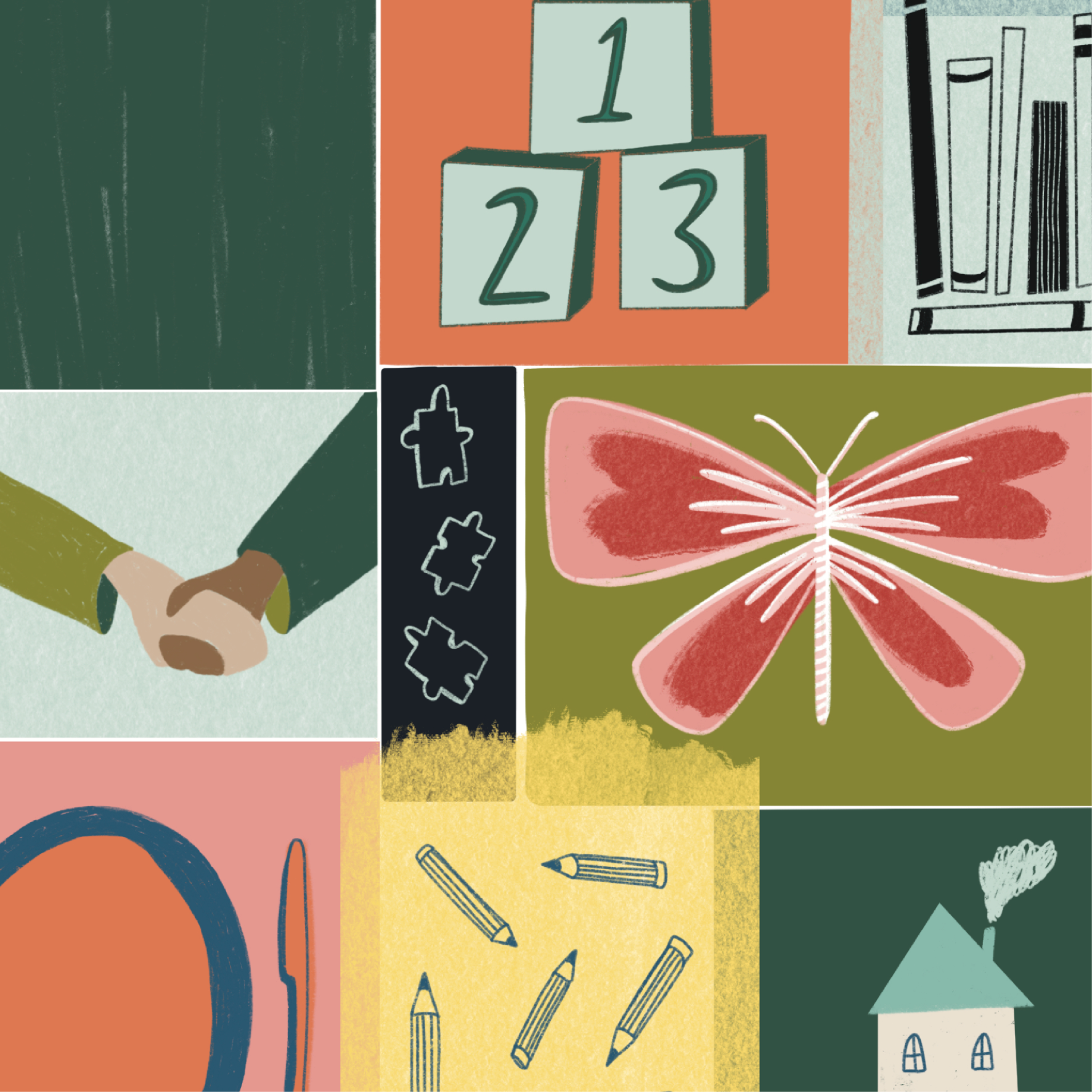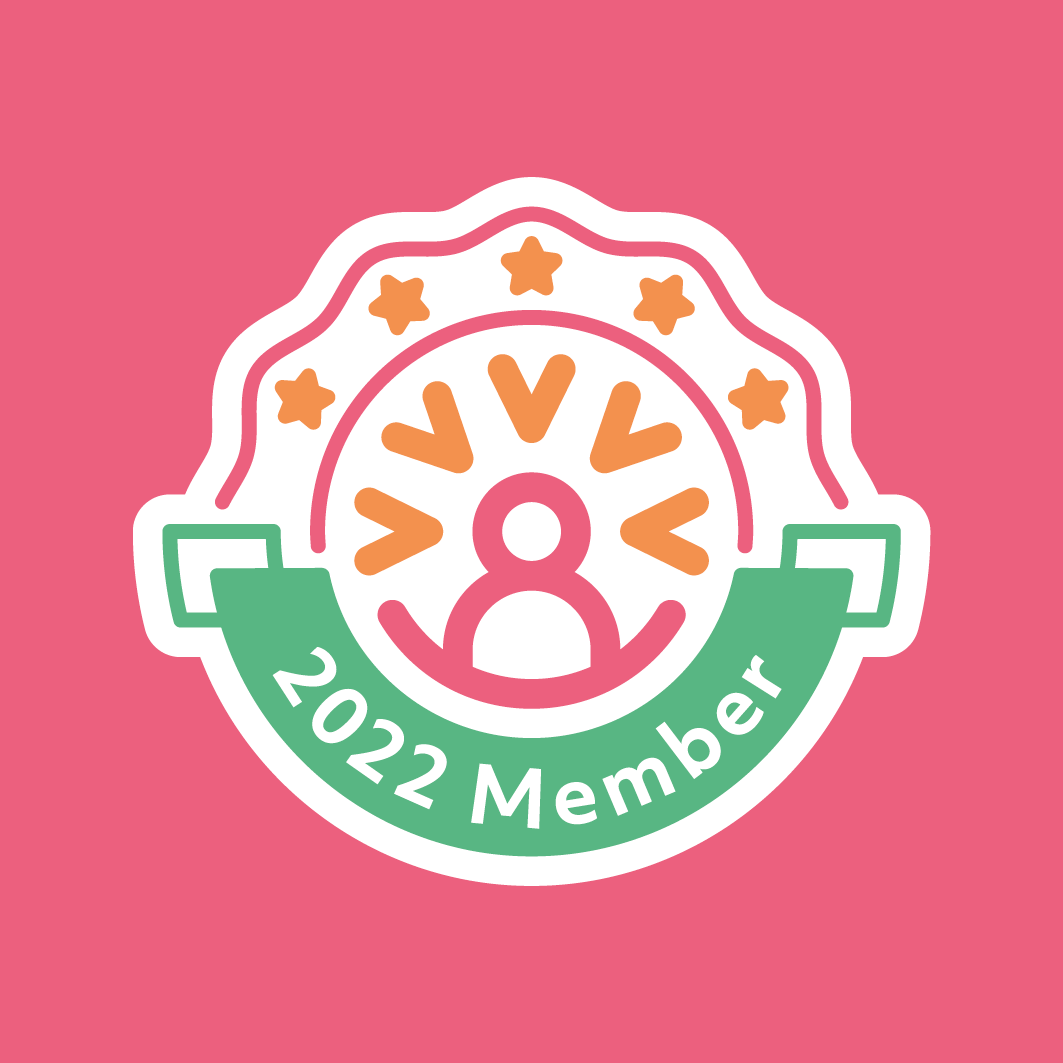Following their workshop at our annual conference, Cyrenians' Digital Media and Content Manager, Colin Waters, discusses how being more in tune with our neural networks can help avoid conflict and relationship breakdown.
This summer, Cyrenians Scottish Centre for Conflict Resolution (SCCR) launched its latest educational digital development. Aimed at young people, the Three Brains brings together music, science, film, and illustrations for a quirky, entertaining look at the mind-body connection, emotional regulation and wellbeing. Characterising the elements of the mind-body connection (the brain, the heart and the gut) as members of a rock band is a fun way of looking at the science of conflict – although the purpose behind The Three Brains is no laughing matter.
In common with our previous projects – Monkey Vs Lizard, #KeepTheHeid and Emotional Homunculus – The Three Brains was conceived as a tool to help reduce the rates of youth homelessness by giving young people the skills to reduce conflict in the family home; relationship breakdown is cited as the most common reason for young people leaving home without somewhere to go onto. According to Scottish Government statistics, there were 8,525 young people registered as homeless in Scotland in 2020/1.
We believe that sharing knowledge about the science can take some of the heat out of conflict by reminding young people and their parents or carers that arguments are actually a normal part of the developmental cycle, and that there are techniques to use to get past the worst of it.
Three Brains
If I was to say to you, your body has three brains, you would of course say, no, it doesn’t – and you’d be right. We’re not claiming that the body has any more actual brains than the one found in your head.
When we talk about the body’s ‘three brains’, we are referring to the ‘neural networks’ in our brain, heart and gut. The heart and gut don’t ‘think’ or have a consciousness like our actual brain does, but like the brain they contain specialised cells called neurons. Typically, thousands of neurons work together in neural networks. They ‘talk’ to each other using electrical signals and chemical messengers called neurotransmitters. These neurotransmitter travel between gut, heart and brain via something called the vagus nerve. Like brains, the gut and heart neural networks can process and store information, change and adapt.
Our physical and mental health are connected and affect our emotions – with the reverse being true too.
We’ve known for centuries that when we feel emotional, the feeling registers as something in our bodies; for example, sinking feelings, butterflies in your stomach, and a racing heart. This has led to common metaphors such as a ‘gut feeling’ and ‘heartbroken’.
Three organs in sync
It used to be thought that communication between brain, heart and gut was one-sided, with the heart and gut responding to the brain’s commands.
We now know the relationship between brain, heart and gut is more like an ongoing conversation that gives these three organs the chance to be in synchronisation with each other.
If the mind-body connection is strong, people tend to be able to manage relationships better because they can regulate their moods. ‘Mood regulation’ sounds a bit technical when put like that, but we’re all familiar with the idea whether we know it or not. For example, most of us know we can change or enhance mood using music. The Three Brains goes further by suggesting young people can regulate their mood themselves, helping to avoid conflict and relationship breakdown at home.
Making music together
The music theme has proved to be a rich source of metaphors for the project. We characterised the elements of the mind-body connection as band members: the brain as singer and guitarist, the heart as drummer, and the gut as bassist. Like a band, the three parts of the mind-body connection need to be in sync to get the best out of them. Equally, even if our mind-body connection is in good shape, like musicians, we never stop ‘practicing’ to get the best out of them.
The pages on the SCCR website (click here to access) include an interactive quiz and a look at the science behind The Three Brains. The quiz uses music-related scenarios to get young people thinking how they would react in different circumstances. For example, ‘A band member hasn’t come to practice. When others don’t show your level of commitment, it upsets you. You call them – what should you say?’ The multiple-choice answers suggest a contemplative one (the brain), an emotional response (the heart) and an instinctive answer (the gut). Our hope is that this gets young people thinking about what is the most appropriate response when in situations that have the potential for conflict.
In addition to the website, we’re currently developing workshops based on The Three Brains we plan to roll out in schools, youth organisations and online next year, as well as adding downloadable resources to the website that could be used by teachers and youth workers. All these resources can be found by visiting our website and clicking on ‘Brainy Stuff’ on the dropdown menu. We hope it tickles at least one of your ‘brains’!
Colin Waters is Digital Media and Content Manager with Cyrenians which manages the Scottish Centre for Conflict Resolution


